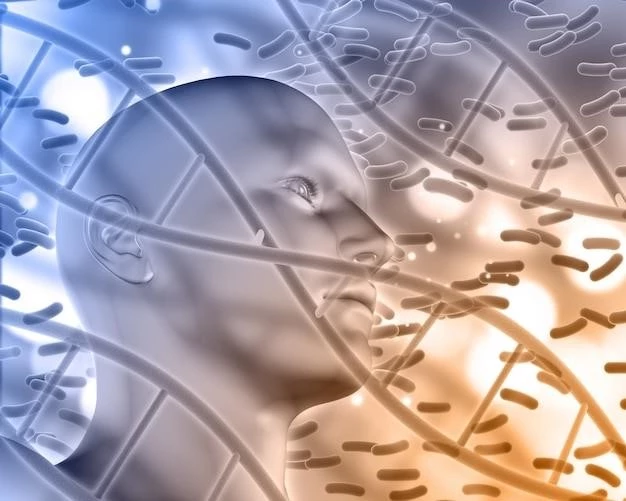Introduction
UDP-galactose 4-epimerase deficiency, also known as GALE deficiency, is a rare disorder affecting galactose metabolism and enzyme activity. It is crucial to understand its impact on health and well-being.
UDP-galactose 4-epimerase deficiency, also known as GALE deficiency, is a rare genetic disorder affecting the metabolism of galactose. This condition is caused by mutations in the GALE gene, which provides instructions for making the enzyme UDP-galactose-4-epimerase. GALE plays a crucial role in catalyzing the interconversion of UDP-galactose and UDP-glucose, essential for galactose metabolism.
Individuals with UDP-galactose-4-epimerase deficiency may experience a range of symptoms related to galactosemia, including seizures, cognitive impairment, hypotonia, liver failure, aminoaciduria, and cataracts. Management of this condition typically involves a galactose/lactose-restricted diet to prevent or correct acute symptoms. Therefore, understanding the genetic and biochemical implications of UDP-galactose-4-epimerase deficiency is essential for diagnosis and treatment.
Overview of UDP-galactose-4-epimerase deficiency
UDP-galactose 4-epimerase deficiency, also known as GALE deficiency, is a rare genetic disorder affecting galactose metabolism. The condition is caused by mutations in the GALE gene, impacting the enzyme UDP-galactose-4-epimerase. This enzyme is vital for converting UDP-galactose to UDP-glucose, crucial in galactose catabolism.
Role of GALE Gene
The GALE gene is responsible for producing the UDP-galactose-4-epimerase enzyme, vital for processing galactose found in various foods. Mutations in this gene can lead to UDP-galactose-4-epimerase deficiency, affecting galactose metabolism and enzyme function.
Enzymatic Function of UDP-galactose-4-epimerase
UDP-galactose-4-epimerase (GALE) plays a crucial role in catalyzing the conversion of UDP-galactose to UDP-glucose, which is essential for normal galactose metabolism. This enzyme is also involved in interconverting other UDP-sugars, contributing to various metabolic pathways. Understanding the enzymatic function of GALE is vital in comprehending the impact of mutations and deficiencies leading to UDP-galactose-4-epimerase deficiency.

Clinical Manifestations
Individuals with UDP-galactose-4-epimerase deficiency may experience various symptoms of galactosemia, including seizures, cognitive impairment, hypotonia, liver failure, aminoaciduria, and cataracts. Proper management strategies are vital to address these manifestations effectively.
Signs and Symptoms of UDP-galactose-4-epimerase Deficiency
UDP-galactose-4-epimerase deficiency can present with signs and symptoms such as seizures, cognitive impairment, hypotonia, liver failure, aminoaciduria, and cataracts. Recognizing these manifestations is crucial for prompt diagnosis and management of the condition.
Management and Treatment Approaches
Management strategies for UDP-galactose-4-epimerase deficiency focus on preventing or correcting acute symptoms commonly associated with galactosemia. A galactose/lactose-restricted diet is crucial to mitigate the potential risks and manifestations of the condition. Additional dietary considerations and medical interventions may be necessary to address specific symptoms and ensure optimal health outcomes for affected individuals. Regular monitoring and personalized treatment plans are essential in managing UDP-galactose-4-epimerase deficiency effectively.
Galactosemia and Epimerase Deficiency
Understanding the relationship between galactosemia and UDP-galactose-4-epimerase deficiency is crucial to recognize the impact of enzyme dysfunction on galactose metabolism. Various types of galactosemia, including epimerase deficiency, underscore the importance of early diagnosis and tailored management approaches.
Relationship between Galactosemia and UDP-galactose-4-epimerase Deficiency
Galactosemia and UDP-galactose-4-epimerase deficiency are interconnected through the impaired metabolism of galactose. While galactosemia results from mutations in specific enzymes involved in galactose breakdown, UDP-galactose-4-epimerase deficiency specifically affects the enzyme responsible for converting UDP-galactose to UDP-glucose. Understanding this relationship is essential for comprehending the biochemical basis of galactose metabolism disorders.
Types of Galactosemia⁚ Focus on Epimerase Deficiency
Galactosemia type III, also known as galactose epimerase deficiency or UDP-galactose-4-epimerase deficiency (GALE), is one of the hereditary galactosemias, involving mutations in the GALE gene. This form of galactosemia affects the enzyme responsible for the interconversion of UDP-galactose and UDP-glucose, critical in galactose metabolism. Understanding the distinct types of galactosemia, particularly epimerase deficiency, is essential in diagnosing and managing this metabolic disorder effectively.
Diagnosis and Screening
Accurate diagnosis of UDP-galactose-4-epimerase deficiency involves specific screening tests to identify mutations in the GALE gene and biochemical assessments to measure galactose metabolism markers. Early detection through newborn screening and genetic counseling plays a crucial role in managing this metabolic disorder effectively.
Diagnostic Methods for Identifying UDP-galactose-4-epimerase Deficiency
Diagnosing UDP-galactose-4-epimerase deficiency involves specific screening tests to detect mutations in the GALE gene. Biochemical assessments are crucial to measure galactose metabolism markers٫ aiding in the accurate identification of this metabolic disorder. Early diagnosis through effective diagnostic methods is key to initiating appropriate management and treatment strategies for individuals affected by UDP-galactose-4-epimerase deficiency.
Newborn Screening and Genetic Counseling
Early detection of UDP-galactose-4-epimerase deficiency through newborn screening is crucial in identifying affected individuals promptly. Genetic counseling plays a significant role in informing families about the risk of inheriting this metabolic disorder and guiding them on appropriate management strategies. Collaborating with healthcare professionals to ensure comprehensive screening and counseling processes can improve outcomes for individuals with UDP-galactose-4-epimerase deficiency.

Research and Case Studies
Exploring fruit fly models can provide insights into the contributions of different enzyme activities related to UDP-galactose-4-epimerase deficiency. Understanding these enzymatic variations can lead to advancements in diagnosing and managing this metabolic disorder effectively.
Recent Findings on GALE Mutations and Associated Conditions
Research highlights the significance of GALE mutations in UDP-galactose-4-epimerase deficiency and its association with various conditions. Understanding the genetic variations and their implications can aid in precision diagnostics and personalized management approaches for individuals affected by this metabolic disorder.
Case Studies Highlighting Epimerase Deficiency Variability
Examining case studies of individuals with UDP-galactose-4-epimerase deficiency showcases the variability in clinical presentations and outcomes. Understanding the diverse manifestations of epimerase deficiency can aid healthcare professionals in developing tailored treatment approaches and improving the quality of care for affected individuals.
